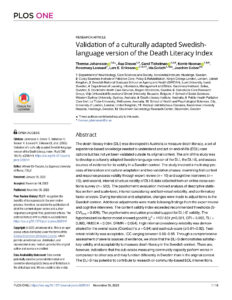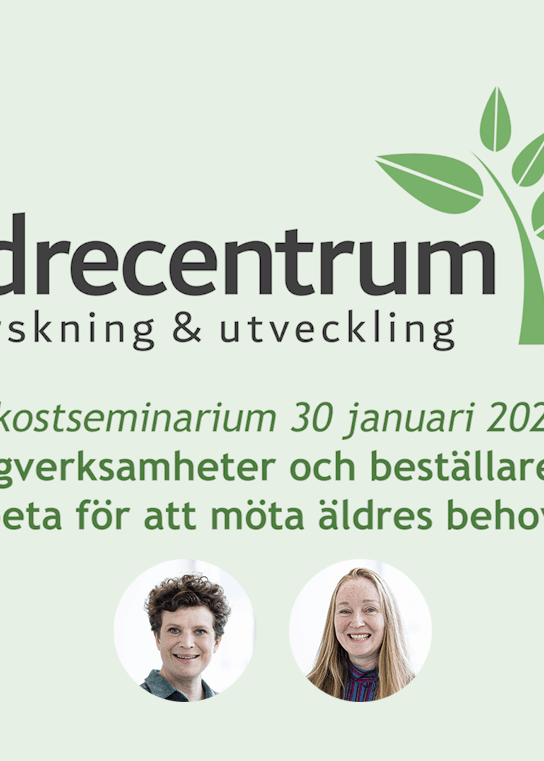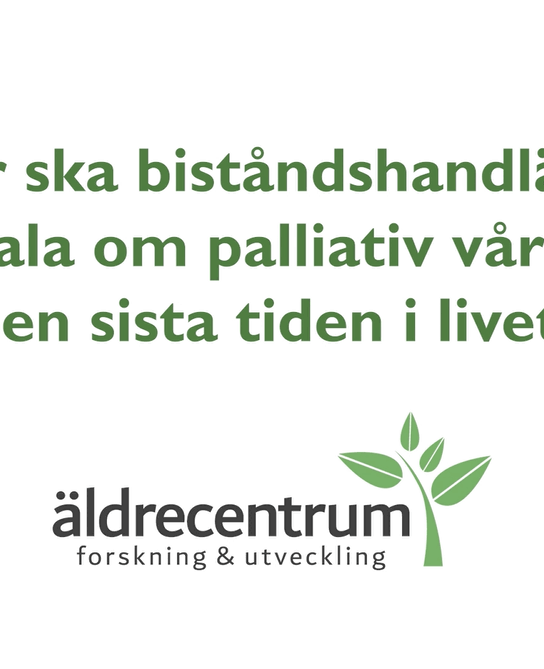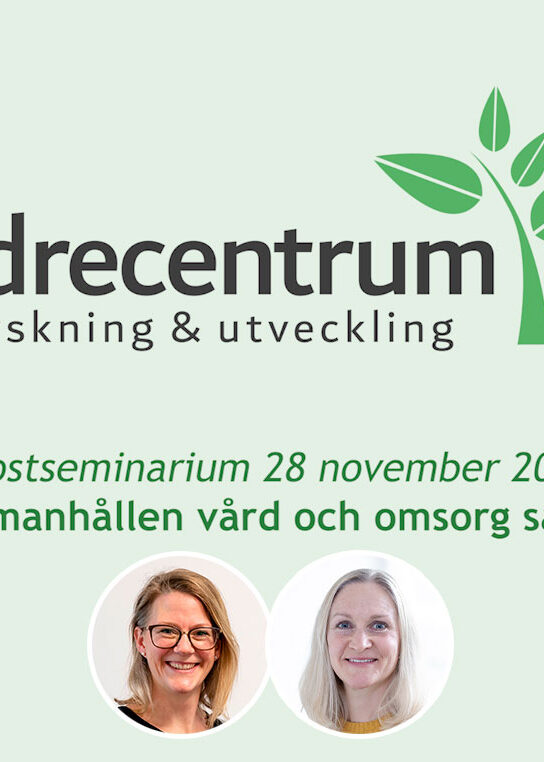 The death literacy index (DLI) was developed in Australia to measure death literacy, a set of experience-based knowledge needed to understand and act on end-of-life (EOL) care options but has not yet been validated outside its original context. The aim of this study was to develop a culturally adapted Swedish-language version of the DLI, the DLI-S, and assess sources of evidence for its validity in a Swedish context.
The death literacy index (DLI) was developed in Australia to measure death literacy, a set of experience-based knowledge needed to understand and act on end-of-life (EOL) care options but has not yet been validated outside its original context. The aim of this study was to develop a culturally adapted Swedish-language version of the DLI, the DLI-S, and assess sources of evidence for its validity in a Swedish context.
The study involved a multi-step process of translation and cultural adaptation and two validation phases: examining first content and response process validity through expert review (n = 10) and cognitive interviews (n = 10); and second, internal structure validity of DLI-S data collected from an online cross-sectional survey (n = 503). The psychometric evaluation involved analysis of descriptive statistics on item and scale-level, internal consistency and test-retest reliability, and confirmatory factor analysis. During translation and adaptation, changes were made to adjust items to the Swedish context. Additional adjustments were made following findings from the expert review and cognitive interviews.
The content validity index exceeded recommended thresholds (S-CVIAve = 0.926). The psychometric evaluation provided support for DLI-S’ validity. The hypothesized six-factor model showed good fit (χ2 = 1107.631 p<0.001, CFI = 0.993, TLI = 0.993, RMSEA = 0.064, SRMR = 0.054). High internal consistency reliability was demonstrated for the overall scale (Cronbach’s α = 0.94) and each sub-scale (α 0.81-0.92). Test-retest reliability was acceptable, ICC ranging between 0.66-0.85.
Through a comprehensive assessment of several sources of evidence, we show that the DLI-S demonstrates satisfactory validity and acceptability to measure death literacy in the Swedish context. There are, however, indications that the sub-scales measuring community capacity perform worse in comparison to other sca and may function differently in Sweden than in the original context. The DLI-S has potential to contribute to research on community-based EOL interventions.
 The death literacy index (DLI) was developed in Australia to measure death literacy, a set of experience-based knowledge needed to understand and act on end-of-life (EOL) care options but has not yet been validated outside its original context. The aim of this study was to develop a culturally adapted Swedish-language version of the DLI, the DLI-S, and assess sources of evidence for its validity in a Swedish context.
The death literacy index (DLI) was developed in Australia to measure death literacy, a set of experience-based knowledge needed to understand and act on end-of-life (EOL) care options but has not yet been validated outside its original context. The aim of this study was to develop a culturally adapted Swedish-language version of the DLI, the DLI-S, and assess sources of evidence for its validity in a Swedish context.



